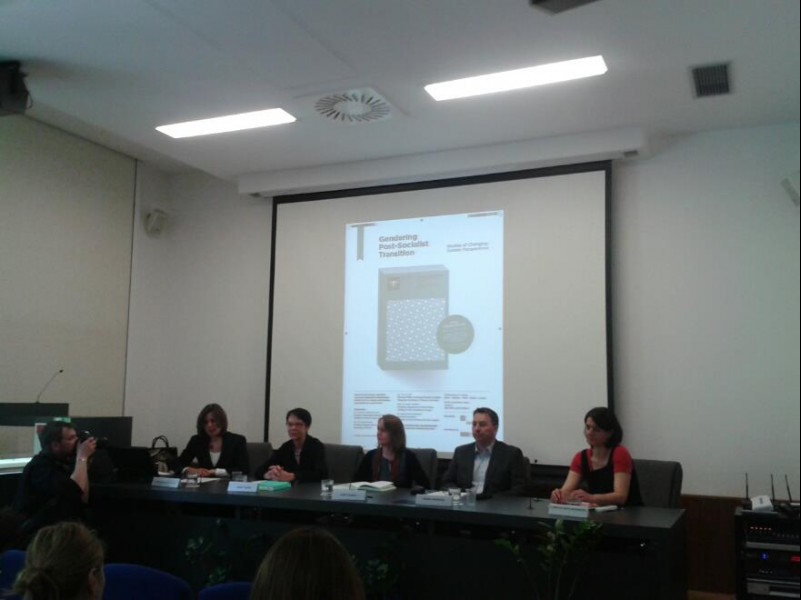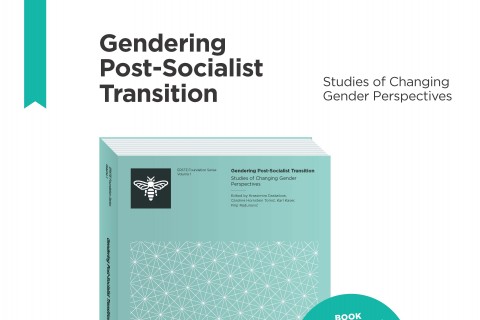Gender Book Tour – Zagreb
Zagreb. Within the project „Gender Book Tour“, initiated by ERSTE Foundation and implemented by WUS Austria, the second presentation of the book "Gendering Post-Socialist Transition. Studies of Changing Gender Perspectives" was organised on April 25th, 2013 at the Ivo Pilar Institute of Social Sciences in Zagreb.
The panel discussion included panelists from Austria, Croatia and Hungary (in alphabetical order): Judit Acsady, Budapest (author); Birgit Sauer, Vienna (reviewer); Lynette Šikić - Mićanović, Zagreb (author); Siniša Zrinščak, Zagreb (expert). The session was moderated by Caroline Hornstein-Tomić from Zagreb.
Dr. sc. Horstein-Tomic from Zagreb who moderated the panel discussion presented the methodological framework of the project. She stressed that the project primarily aimed at gathering empirical data and that both quantitative and the qualitative methods were used.
Prof. Dr. sc. Birgit Sauer from Vienna introduced the audience to the content of the book. She emphasized that post-socialist transition as multifaceted process cannot be truly understood without taking into account the gender perspective. Although this process was different in the nine countries covered by the research, all of them show the changes in gender images, roles and relationships.
Dr. sc. Judit Ascady from Budapest, presented her experience about research on the gender aspect of care, carried out in Hungary. Since care is traditionally perceived as female quality and female job, one of the main aims of her research team was to examine whether care is still perceived as related primarily to women. Interviews with employees in care system showed that they do not see their role as gendered, female and male interviewees perceived their job as something equally related to women and men.
Dr. sc. Zrinščak from Zagreb focused on the welfare state in Croatia. He pointed out that since 1990 there have not been true changes in gender relations in real, everyday life. According to him some of the major problems still present in Croatia are low social benefits, the marginalization of social services, the absence of national policies, and unequal access to health care.
Dr. sc. Šikić-Mičanović who led the research team examining gender experience of homelessness in Croatia emphasized that the problem of homeless people hasbeen systematically ignored by all social actors. Since homelessness is often perceived as a male phenomenon the research focused on homeless women. The study conducted in seven Croatian cities showed that the main reasons for female homelessness are related to violence, while male homelessness is more related with to job loss.
The book "Gendering Post-Socialist Transition. Studies of Changing Gender Perspectives" was developed as Volume 1 of the ERSTE Foundation Series as a result of the research which explored the social constructions of femininity and masculinity and the role of women in Central & South East Europe with focus on the transition beginning in 1989. This was the second event (Belgrade on 28th March, Zagreb on 25th April) within the series of the book presentations, which will be continued in Sofia (14.5.) and Budapest (11.6.). Its aim is to raise awareness and support the discussion among the academics, researchers, students, NGOs, media and the general public regarding the issue of gender and especially the transformation of gender identities in Central and South East Europe.
We are thankful to the Ivo Pilar Institute of Social Sciences for hosting the event and for their local support!



